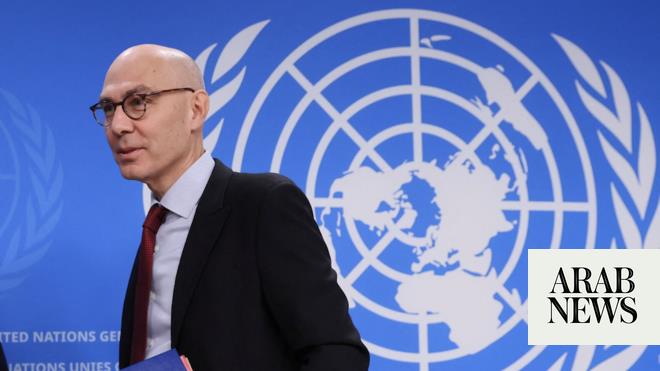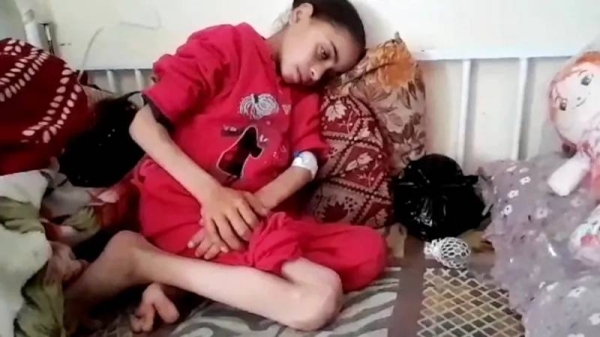
Volker Turk: New offensive would exacerbate civilian deaths, suffering beyond ‘already unbearable levels’ — According to UNICEF, children account for half of the more than 1.2m people sheltering in Rafah
NEW YORK: UN human rights chief Volker Turk on Monday warned that Israel’s orders for Palestinians to vacate parts of Rafah ahead of a new offensive there would only exacerbate civilian deaths and suffering beyond “already unbearable levels.”
He added that such actions could constitute war crimes, and lamented that months of “relentless strikes” by Israel across the enclave have left no other location except Rafah with the infrastructure and resources to host the mass displacement of more than 1.2 million Palestinians.
Sheltering in tents and overcrowded schools in Rafah, they are now being instructed to move to Al-Mawasi, an area that is already overcrowded and lacking essential services.
Turk said the Israeli orders to relocate Palestinians are “inhumane” and risk exposing them to further danger and misery. Such actions “can sometimes amount to a war crime,” he added.
“Gazans continue to be hit with bombs, disease, and even famine. And today, they have been told that they must relocate yet again as Israeli military operations into Rafah scale up,” Turk said. “This is inhumane.”
The UN Office for the Coordination of Humanitarian Affairs on Monday said a mass evacuation on this scale “is impossible to carry out safely.”
OCHA added that the area of Rafah under evacuation orders covers more than 30 sq. km. There are nine sites sheltering displaced people in the area. It is also home to three clinics and six warehouses.
As of today, more than three-quarters of the Gaza Strip are under evacuation orders.
OCHA said any full-scale incursion into Rafah would push displaced Palestinians “past their breaking point,” and would cripple the already very fragile humanitarian operation there.
It added: “The UN is not taking part in involuntary evacuations or in the setting up of any displacement zones in southern Gaza.”
According to UNICEF, children account for half of the more than 1.2 million people sheltering in Rafah.
In a statement on Monday, the agency called for children not to be forcibly relocated, saying there is nowhere safe for them to go.
UNICEF said potential evacuation corridors are likely mined or littered with unexploded ordnance, and shelter and services in areas for relocation are likely to be limited.
Turk stressed that international humanitarian law prohibits ordering the displacement of civilians for reasons related to the conflict unless the security of civilians involved or “imperative military reasons so demand,” and even then subject to strict legal requirements.
“Failure to meet these obligations may amount to forced displacement, which is a war crime,” the office of the UN High Commissioner for Human Rights said in a statement.
“Forcibly relocating hundreds of thousands from Rafah to areas which have already been flattened and where there is little shelter and virtually no access to humanitarian assistance necessary for their survival is inconceivable. It will only expose them to more danger and misery.”
On Monday, Israel carried out airstrikes on Rafah, killing at least 26 Palestinians, most of them women and children.
Also on Monday, two crossings into Rafah were closed, completely disrupting the already meager flow of humanitarian assistance.
“More attacks on what is now the primary humanitarian hub in the Gaza Strip are not the answer,” said Turk.
“The lessons of the past seven months of conflict in Gaza are clear — with women and children making up over 70 percent of the more than 120,000 killed, wounded and missing. Enough of the killing.”
Turk reiterated the urgent need for a ceasefire and unhindered, at-scale flow of humanitarian aid into Gaza.
He also called for the immediate release of hostages held by Hamas, and of Palestinians arbitrarily detained by Israel.









